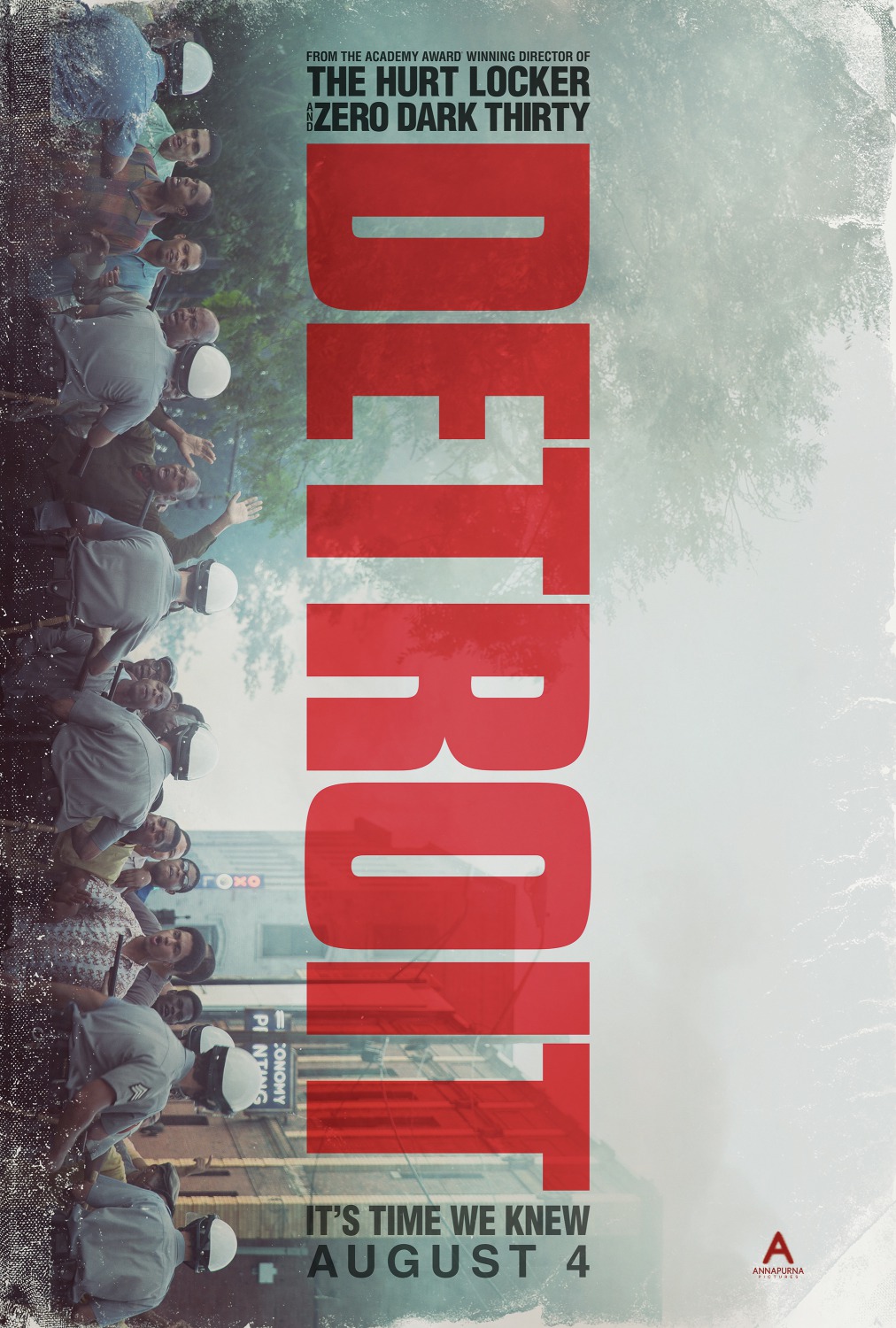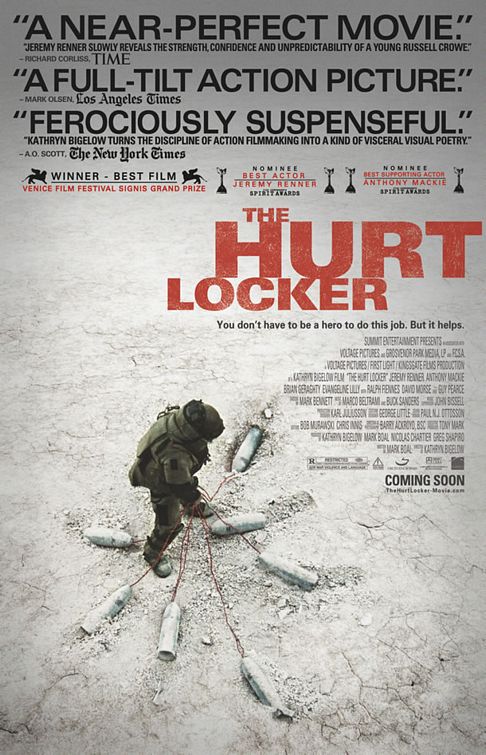
Director Kathryn Bigelow has been in the film industry for quite a few decades now. While most of her early works didn’t do so well at the box-office, that didn’t stop them from attracting considerable acclaim from critics. This included, among others, 1987’s Near Dark and 1995’s Strange Days. Back then, one of her biggest collaborators was her ex-husband, fellow director James Cameron. Nowadays, her biggest collaborator is journalist turned screenwriter Mark Boal. They first worked together on 2009’s The Hurt Locker, which went on to win six Oscars at that year’s ceremony, including Best Original Screenplay for Boal, a Best Director win for Bigelow (making her the first female director to win the award), and most importantly, Best Picture. Three years later, they teamed up again for Zero Dark Thirty, which recounted the events of the U.S. government’s decade-long manhunt for Osama bin Laden. Like The Hurt Locker, it attracted rave reviews from critics. However, it also sparked much controversy for various reasons (e.g. its allegedly ‘pro-torture’ mentality) and it only won for Best Sound Editing at that year’s Oscar ceremony, an honor which it shared with Skyfall in a rare Oscars tie. This year, Bigelow and Boal are back with their third major collaboration together, Detroit. Like Zero Dark Thirty, it’s based on a true story; in this instance, the 12th Street Riots, which occurred from July 23rd to July 27th, 1967 (half a century ago now) in Detroit, Michigan. In this film, Bigelow and Boal primarily focus in on one of the most infamous incidents that occurred during the rioting at a local spot known as the Algiers Motel, which resulted in the deaths of three African-American teenagers and the brutal beatings of the other men and women tied to the event by a collection of corrupt, racist cops. And thanks to brilliant performances and an unflinching look at what happened that night, Detroit is sure to be another major awards contender for this dynamic director-writer duo.
On Sunday, July 23rd, 1967, members of the Detroit Police Department raid a party that’s going on inside an illegal speakeasy located on 12th Street. As the police begin to round up those in the establishment, the angry responses from nearby onlookers soon turn violent, resulting in a full-blown riot that lasts several days. As looters begin to rob stores and buildings start burning all over the city, the National Guard is brought in to aid Detroit’s predominantly-white police force in their attempts to quell the rioters. However, this incident soon becomes even more serious on July 26th. During a night of intense rioting, Larry Reed (Algee Smith), a member of the local band known as the Dramatics, and his friend Fred Temple (Jacob Latimore), decide to retreat to the Algiers Motel to avoid getting into any trouble with the cops. While there, one of the residents, Carl Cooper (Jacob Mitchell), jokingly pretends to fire a toy gun at the police officers and National Guardsmen situated outside the motel. However, this immediately causes the officers to react in retaliation to this supposed ‘sniper’. Once all the people in the building are rounded up, a trio of police officers, Krauss (Will Poulter), Demens (Jack Reynor), and Flynn (Ben O’Toole) take charge of the situation to try and figure out who the shooter was. However, their aggressively cruel handling of everything soon sends shockwaves throughout the entire city while simultaneously adding more fuel to the fire in these racially tense times.
While the film mainly focuses in on one incident from this whole ordeal, Bigelow and Boal fully immerse you into the chaos that came from the Detroit riots. Now admittedly though, because of this, the film doesn’t exactly delve fully into everything that led to the rioting, save for a brief animated intro that goes over the racial divide at the time. Still, thanks to Bigelow’s trademark shooting style and editing work, the film manages to establish an impressive sense of realism, something that’s become another trademark of Bigelow’s recent films. The sheer brutality that is exerted by the racist and corrupt officers involved in the Algiers incident is portrayed in a completely unwavering matter. Now, with that said, the film does take some creative liberties with the events of that night. Obviously, this is something that happens all the time with films that are based on true stories. But in this case, this is very much emphasized and it’s even acknowledged in the end credits. Because after all, not everything that happened that night at the Algiers has been completely documented. However, I do think that Bigelow and Boal did manage to get the point across in terms of the horrific nature of the atrocities that happened there on that summer night. Bottom line, this is by no means an easy watch. With that said, though, while the film does share a similarly hefty runtime with Bigelow and Boal’s last film, Zero Dark Thirty, this one flowed much better, by comparison, thanks to far superior pacing. In other words, there wasn’t any major part of this film that dragged. In fact, I’d say that this film does a lot of things better than Zero Dark Thirty, especially in terms of it giving us a more emotionally-involved story.
The film takes a similar route that Dunkirk took a few weeks back by not necessarily having a definitive main character. Instead, it focuses in on the various people who were involved in the situation, from the lone African-American officer, security guard Melvin Dismukes (John Boyega), who got caught up in the whole ordeal to the two young white women who were brutally assaulted alongside the African-American men at the Algiers, Juli Hysell (Hannah Murray) and Karen Malloy (Kaitlyn Dever). And overall, everyone in the cast does an excellent job in their respective roles. Boyega’s character, Dismukes, isn’t front and center like the trailers have implied but he does do an excellent job as one of the few ‘honest cops’ in this situation who finds himself put under intense scrutiny due to him being one of the few African-American officers in the city. The same applies to the other big names of the cast who mainly occupy minor supporting roles, including Anthony Mackie as one of the men harassed by the officers at the Algiers, Jacob Mitchell as Carl Cooper, and John Krasinski as the attorney for the corrupt cops when they get charged with murder. Ultimately, the two biggest characters in the film are newcomer Algee Smith as Larry Reed and Will Poulter as Krauss, the ‘leader’ of the corrupt cops. The parts of the storyline revolving around Larry and his friend Fred are what ultimately gives the film its most prevalent bits of emotional depth. On the flip side, you have Poulter doing a phenomenal job at being the most despicable character in the film; seriously, his character openly states that he blames the black community for all the rioting. It’s a lot like Michael Fassbender’s performance in 12 Years a Slave. He’s playing a completely vile character and yet is so good in the role that you can’t take your eyes off him either no matter how hard you try.
Overall, I feel that Detroit did a lot of things better than the last Bigelow/Boal feature, Zero Dark Thirty. Because while both films focused on a major event in U.S. history, Zero Dark Thirty suffered from being too devoid of emotional depth, resulting in quite a lot of dry proceedings. And while Detroit may not always succeed at showcasing the struggles that were going on in Detroit at that time, it’s a far more engrossing story by comparison. Because after all, at the risk of stepping too far into political territory here (something that I don’t like to do in my reviews), stuff like this is still happening today. While it’s been over half of century since these events transpired, we’re still seeing incidents like this where African-Americans are dealing with intense discrimination from the police. This makes Detroit such an important film in this current landscape because it doesn’t relent in showcasing one of the darkest moments in our country’s history. Heck, I even agree with the common consensus that’s being tossed around in that the whole sequence focusing on the Algiers Motel incident very much feels like something out of a horror film. Like I said before, this film can often be emotionally taxing to watch, especially during the finale that covers the corrupt cops’ subsequent murder trial (without giving the full details of it away for those unaware of what happened, the results aren’t pretty). However, thanks to strong performances from its ensemble cast and the equally strong direction from Kathryn Bigelow, Detroit is sure to be another big awards contender for Bigelow and writer Mark Boal. Admittedly, I wouldn’t call this film ‘perfect’ but it’s still very much a must-see.
Rating: 4.5/5


